
Reimaging God in Korean Context Coursya
The word "god" in Korean can be expressed in a number of ways. You can say it as 하느님 (haneunim) if you're talking about the god above the sky. You can use 신 (sin) if you are referring to a god of something. For example, 사랑의 신 (sarangui sin). This means "god of love."

13 Most Powerful Korean Mythology Gods and Goddesses
Korean Mythology Gods and Goddesses by World History Edu · Published August 10, 2023 · Updated August 10, 2023 Korean mythology is deeply rooted in the cultural fabric of the Korean Peninsula and offers a rich tapestry of deities, spirits, and legendary creatures.

Seokga The Trickster God in 2022 Korean mythology, Mythology, God
Korean mythology is a group of myths shared by historical and modern Koreans. Korean mythology can be divided into literary and oral traditions. Korean literary mythology expresses traditional.
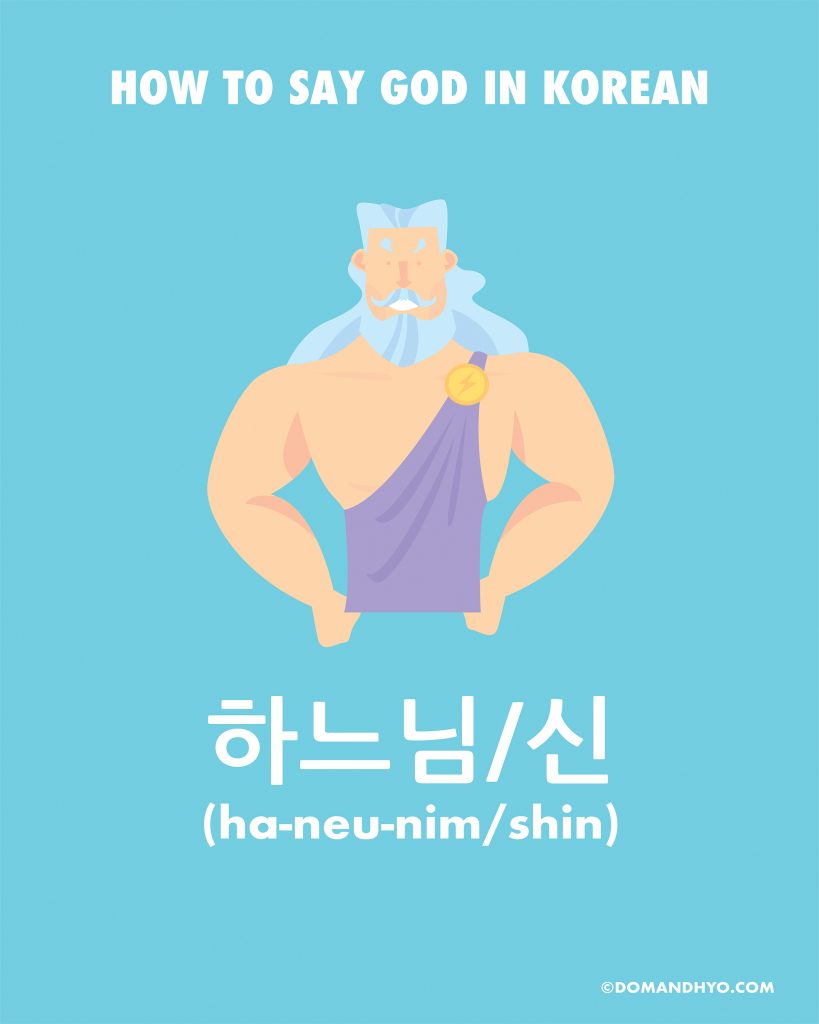
howtosaygodinkorean Learn Korean with Fun & Colorful Infographics
2. Hananim. Hananim is the name used by most Christians in Korea for God. This term takes the Korean word for 'one" hana and adds on 'nim," thus emphasizing there is only one god to them. People will often utter these words when facing danger or needing assistance badly in life. Many Koreans practice daily prayer or "gidohoe (giwonhada).
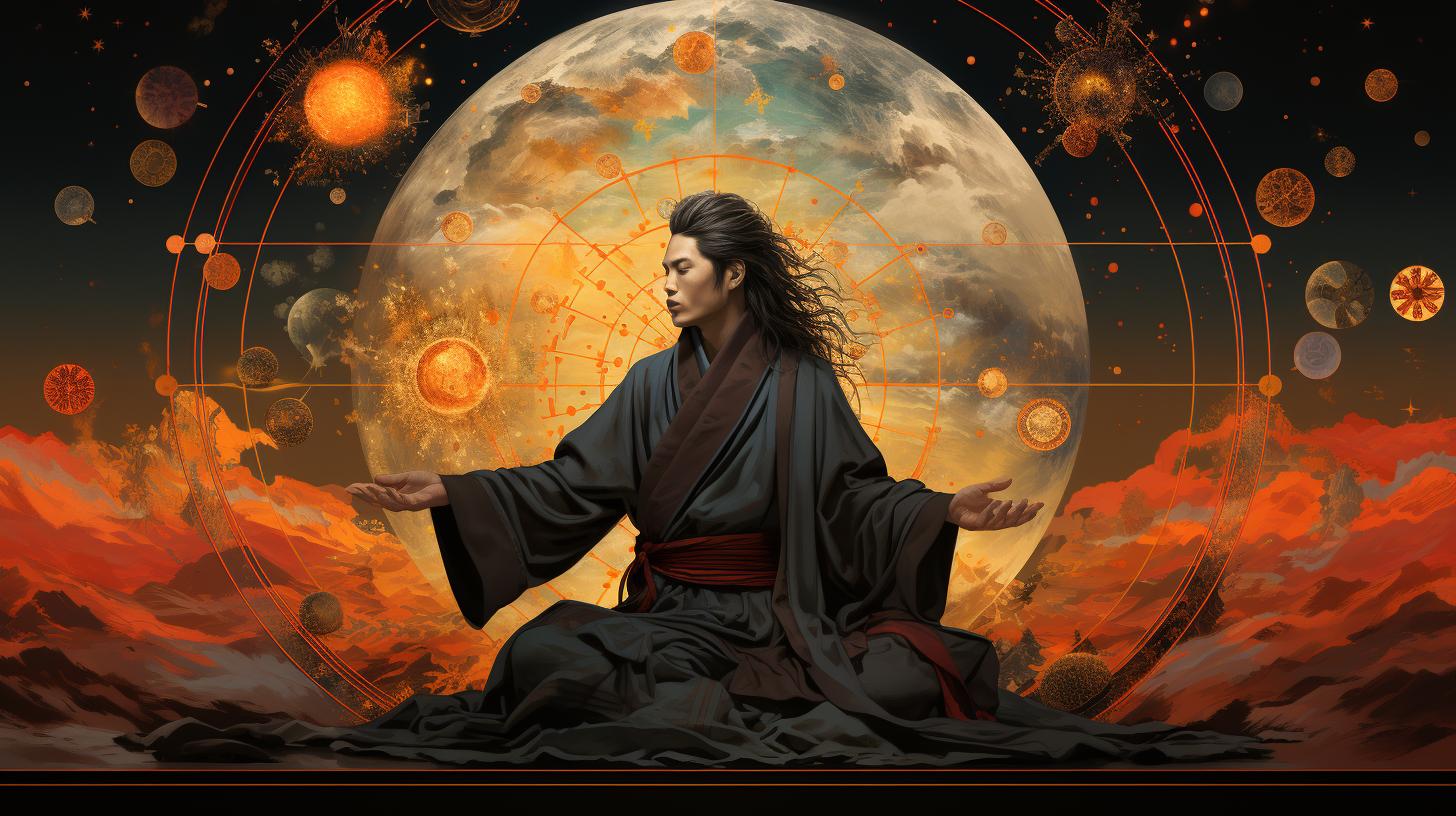
Mireuk Korean God Unveiling the Mysteries of Korean Mythology Old World Gods
Korean Sun God mythology holds a significant place in Korean culture and history. Haemosu, the powerful Korean Sun God, plays a central role in the pantheon. Believed to descend from the heavens in a majestic chariot, Haemosu listens to the concerns of the people before ascending at sunset. Legends surround Haemosu's encounters with deities.
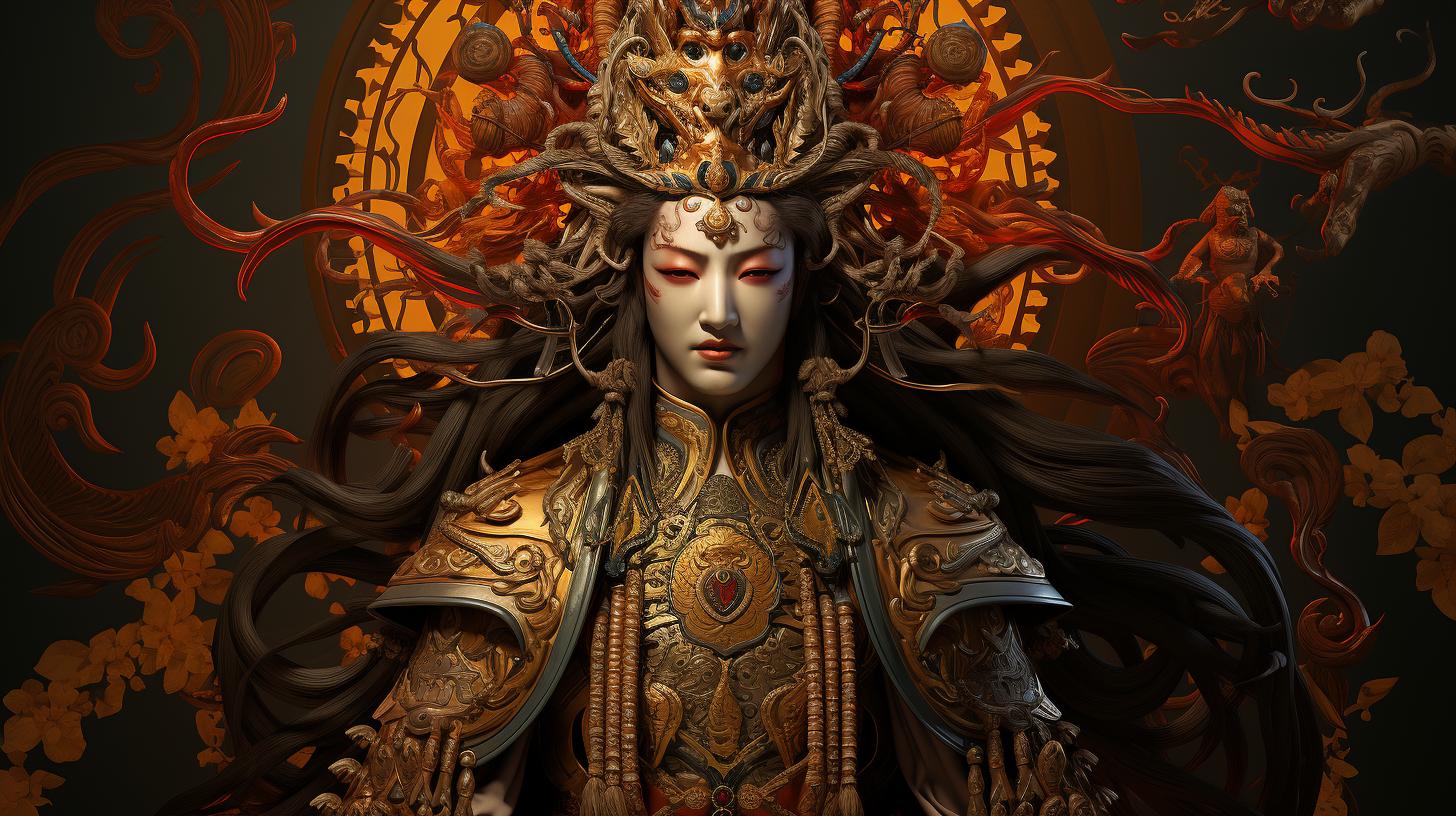
Korean Mythology Gods and Goddesses Unveiling the Legendary Deities from Korea Old World Gods
Our word for today is 'God'. There are many ways to say this depending on the context and situation. For most Koreans, referring to God as simply a being that is up the sky would be called 하느님. The name comes from the word 하늘 (ha-neul) which means sky or heaven.
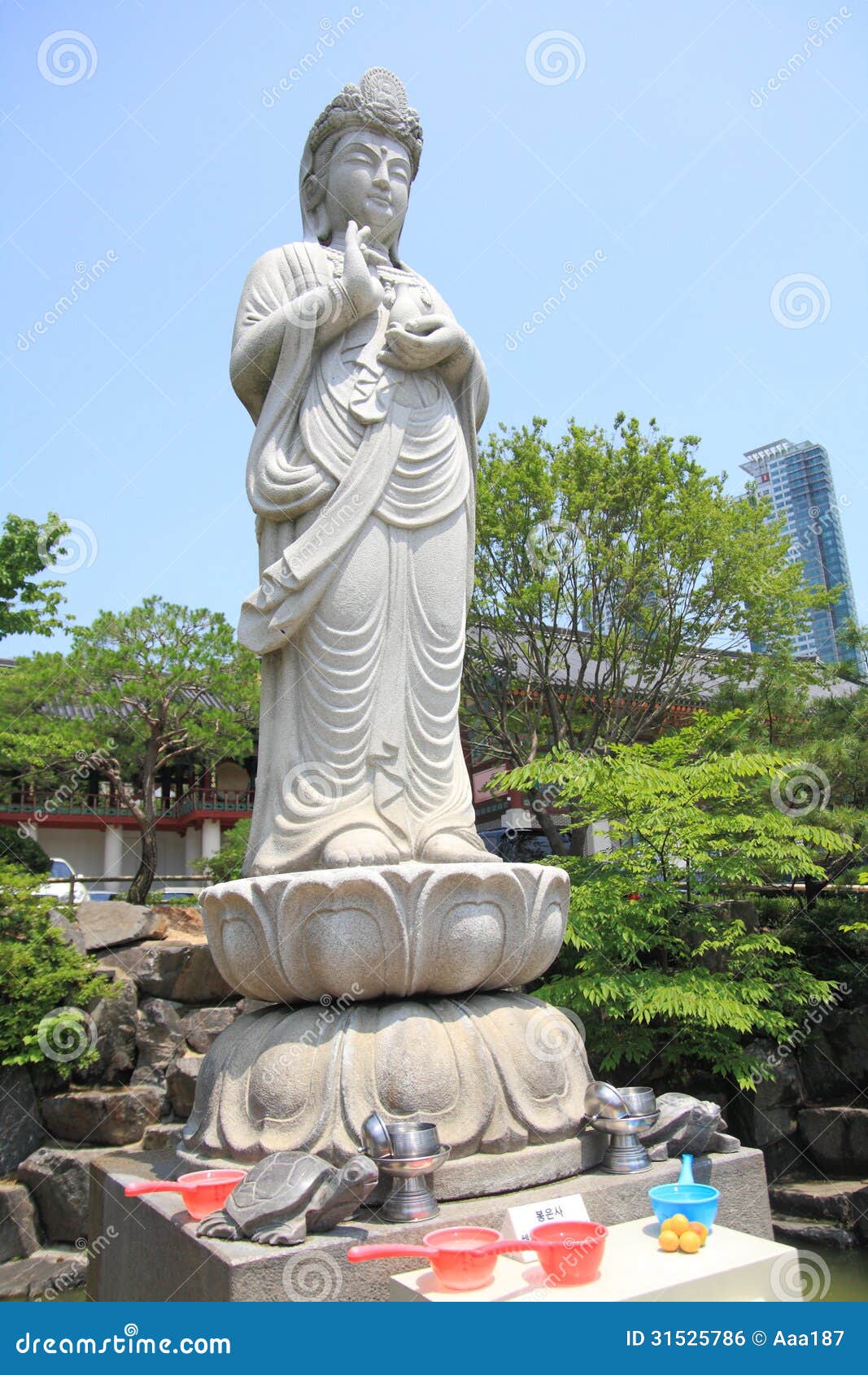
Rock Statue of God in Korea Stock Photo Image of asia, sightseeing 31525786
What is "God" in Korean and how to say it? American English god Korean 신 More Religion Vocabulary in Korean American English Korean church 교회 priest 신부 pope 교황 angel 천사 buddhism 불교 christianity 기독교 devil 악마 heaven 천국 hinduism 힌두교 islam 이슬람교 judaism 유대교 meditation 명상 monk 스님 mosque 모스크 nun 수녀

Seokga The Trickster God Korean Mythology Asian Mythology Mythlok YouTube
1. Sang-Je He is the highest deity or the king of all the Korean gods and is believed to be the supreme ruler of heaven or called Haneul. He is also known as the father of all the other Korean gods. It is also said that Sang-Je was the only medium that many humans had to pass through to become immortal gods in the Korean pantheon.
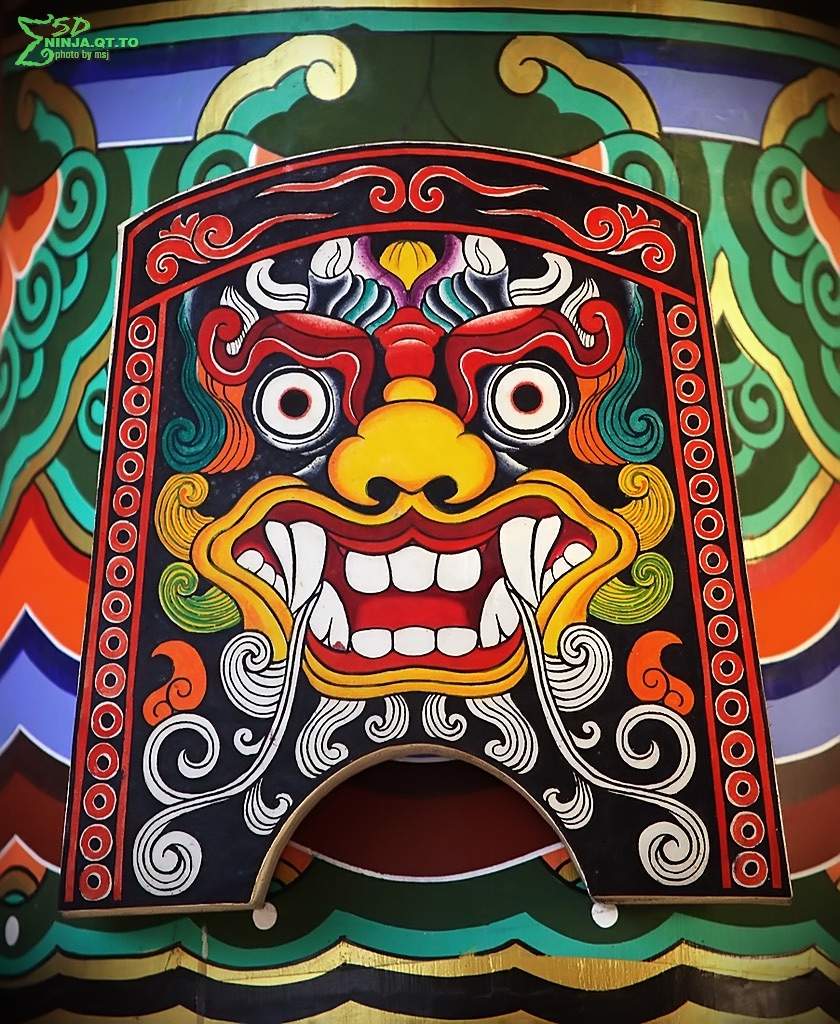
Focus Korean Mythology Mythology & Cultures Amino
by Will | Epic Korean gods are some of the most fascinating of world mythology. From Jumong, the master archer who founded Korea, to the amazing gods Jeju island, this is a list of fascinating Korean gods. 1) Jumong - The Master Archer Who Founded Korea yeowatzup / (CC BY 2.0) According to legend Jumong was almost never born.
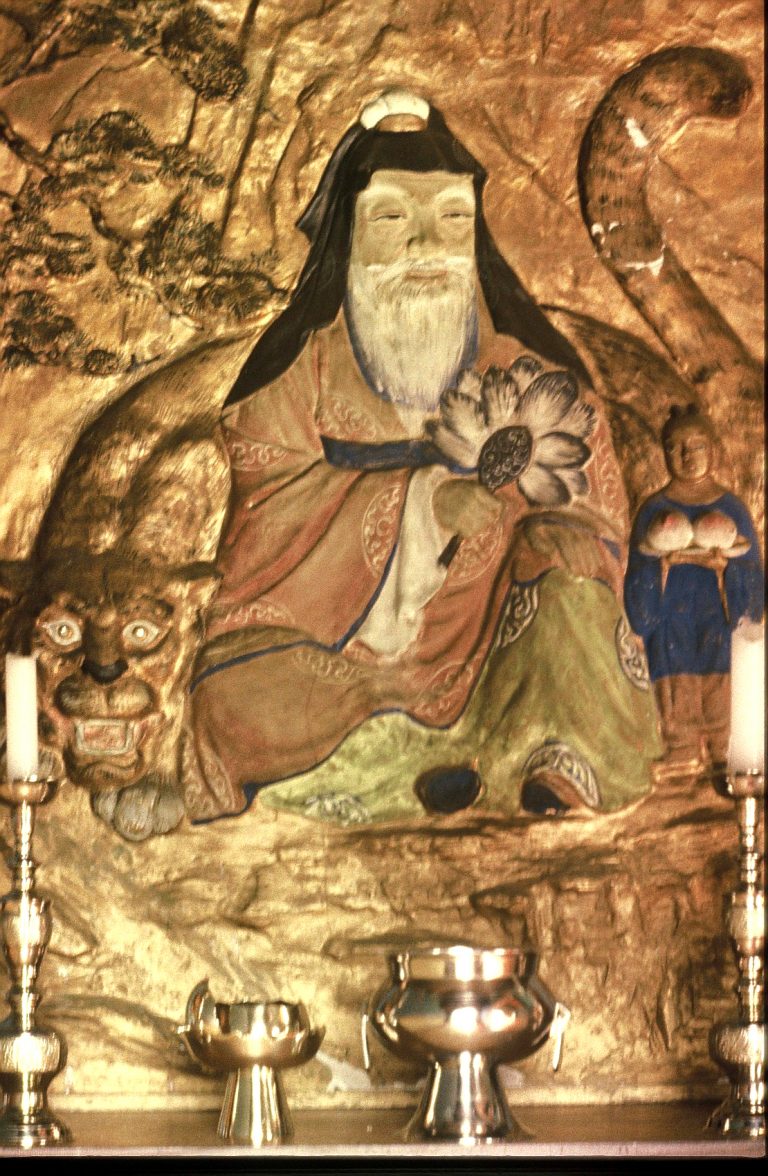
Gods of Korean Shamanism •
LearnKorean words for god, goddess, angel, heaven, hell and how to use them. Can you say someone looks "heavenly" in Korean like in English? Or are these words only used in the literal sense?.

The Holy Trinity in Korean Mythology Hwanin, Hwanung & Dangun r/Hangukin
Yongwang is a divine being who governs rivers, streams, lakes, and seas and controls storms and rain. Pretty much like a Korean Poseidon, if he were a dragon masquerading as a man. Yongwang literally means " dragon king". In fishing villages, Koreans used to make offerings to Yongwang for peaceful waters and a bountiful catch.

God in Korean god church christian Hangul Korea Kdrama Kpop Art Print by jojoloves Society6
God as Heaven: Korean Confucian Culture and God-Image. The module 3 will examine the image of a heavenly God in the cultural context of Korea with the emphasis on Korean Confucian understanding of the "Chon" (heaven). Noting the collective (cultural) representations of the "Chon" (heaven), the interplay among transcendental and immanent images.

Sansin, the god of mountains (The Korean mythology) Musée Guimet, Paris, France Korean
Seokga: Trickster Korean God. Seokga is the trickster god in the Korean Pantheon. He is known as a trickster god due to his love for playing tricks and deceiving humans. He is also known for creating the world alongside Mireuk. However, Seokga wanted to be the lone ruler of the human world. And so, he challenged Mireuk to a competition.

Seokga (석가) is rebellious trickster god in Korean mythology. He and Mireuk were responsible for
In Korean, the term for God is 'Hananim' or 'Haneulnim,' which translates to 'the one above' or 'the one in heaven.' These terms emphasize the divine presence and power of God. Additionally, 'Eungwon' is used to refer to the creator or the one who brings blessings. Buddhist Concepts of God

Korean mythology Korean mythology, Mythology, Mythology books
Exploring the Korean Pantheon Embark on a captivating journey through the mystical and diverse world of Korean mythology, where gods and goddesses hold great significance. This section delves into the enchanting tales and unique characteristics of various deities that make up the Korean pantheon. Sang-Je: The Supreme Deity of Korean Mythology
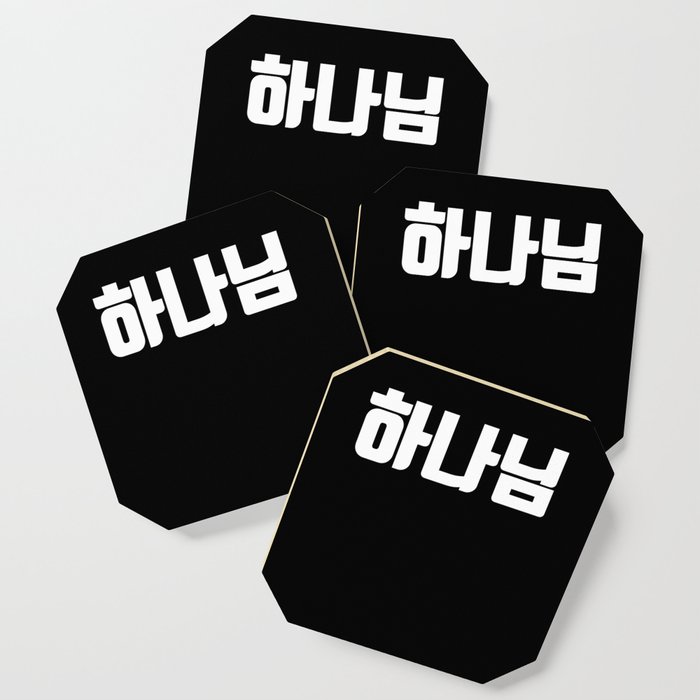
God in Korean god church christian Hangul Korea Kdrama Kpop Coaster by jojoloves Society6
According to Korean mythology, Hwanin is the god who created heaven and earth. He is also known as the "Lord of Heaven" or "Heavenly King." Hwanin is considered to be a benevolent god who governs over all other gods and spirits. Hwanung: The Son of Hwanin Hwanin had a son named Hwanung, who was sent down to earth to establish a new kingdom.